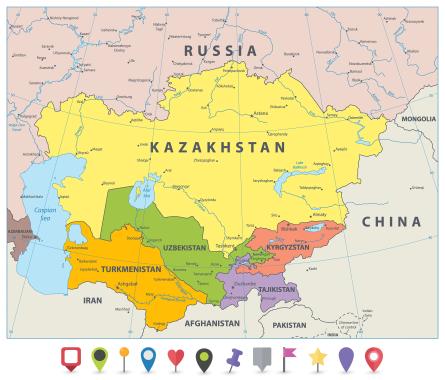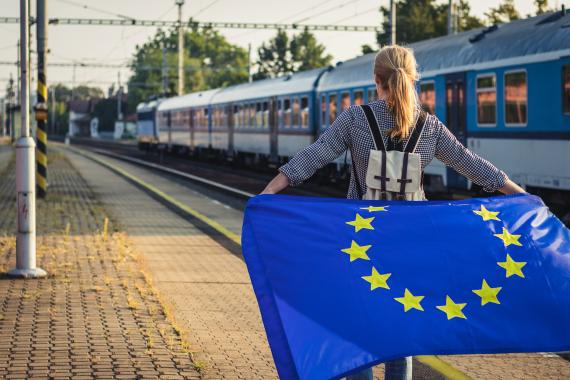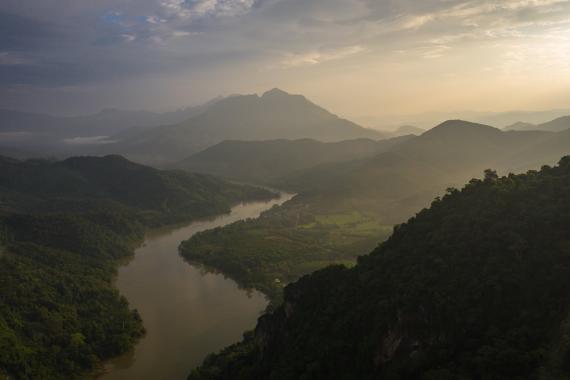Veranstaltungen - Multinationaler Entwicklungsdialog Brüssel
Derzeit sind keine Veranstaltungen geplant.
Online-Seminar
Mitigating harm through collaboration – Protection of civilians in the Sahel
SAHEL Security Dialogue Series: Seminar #2
Following repeated calls for more effective protection of civilians by UN mission MINUSMA, and a number of organisations working in and on the region, European Union Special Representative (EUSR) for the Sahel Ángel Losada recently stated that human rights will be amongst the top EU priorities for the region. As the EU prepares to release its renewed Sahel Strategy, we intend to unpack some of the priorities identified by the EUSR and discuss them with counterparts in the region. What has worked so far in terms of respect for human rights? What is left to tackle? How can cooperation amongst very different actors be made more efficient in order to address some of the most pressing security threats in the Sahel?
Online-Seminar
Inter-Libyan Dialogue: efficiency and outcomes
Future Dialogue on Libya #1
This event is part of an online seminar series entitled “Future Dialogue on Libya: Insights on the Libyan crisis and ways forward”. This online event will allow for a constructive conversation on what these efforts on Libya entail, what motivation the foreign key actors have to get involved in the mediation, how Libyan stakeholders react to the prospect of the latest inter-Libyan talks and what are its chances of success.
Online-Seminar
EU-China economic relations
in the context of the COVID-19 pandemic
Against the backdrop of the COVID-19 pandemic and its tremendous impact on economies around the world, this webinar is to bring together Chinese and European experts to discuss macroeconomic and crisis policy measures taken during the pandemic, both in the EU and China, as well as cooperation potential between both sides to boost the recovery of their own and global economy considering the current geopolitical intergovernmental relations and developments (e.g. EU-China and US-China relations, trade and investment issues etc.).
Online-Seminar
Ways out of the European-Cambodian Relations Crisis
Discussing solutions for the strained European-Cambodian relations
The roundtable will gather a selected group of experts from Cambodia and the EU in order to discuss the recent EBA withdrawal, future outlooks for Cambodia’s EBA status, how Europe’s relations with Cambodia can be improved through possible trust building activities and what impact the current relations will have on the ASEM meeting in May 2021 hosted by Cambodia. It is our aim to discuss and develop constructive and forward-looking approaches to improve and strengthen the relation between Cambodia and the EU.
Online-Seminar
Towards a more comprehensive EU Approach to engage with political parties
Expert discussion under Chatham House rule
Political parties are key instruments in achieving power in a representative democracy. This is the main reason why governments and political elites in all countries are highly sensitive to the cooperation of foreign actors with political parties. Understandably, these governments are opposed to outside influence affecting their domestic power structures. However, political parties are not just instruments to achieve power in a representative democracy. Their structures and activities are also highly relevant for the inclusivity and stability of a representative democracy. If they are disorganized or dysfunctional, the quality of the democratic order, including government accountability and the respect and promotion of human rights, is negatively affected. These two fundamental observations create a dilemma for the EU in its agenda to promote democracy and human rights in its external action: if the EU excludes political party cooperation from its programs and activities, it cannot achieve important objectives in the field of democracy and human rights. If the EU includes political party cooperation, it risks running into serious conflict with the respective host countries’ governments and political elites. Beyond democracy and human rights, EU engagement in political party cooperation can offer opportunities for promoting constructive partnerships in the areas of peace and security, climate change and disaster prevention, the management of migration, or other thematic fields. Political parties are the key channels through which current and future leaders develop both their understanding of policies and original ideas. Through political party cooperation programs, the EU and European stakeholders develop trusting and supportive relationships with future political leaders, irrespective of the ruling government and any potential political changes.
Event
Supporting Participative Democracy at the Local Level: Solving local problems
Experiences from Ukraine and Moldova
Local authorities are facing challenges to deliver sustainable solutions for their communities in a differentiated society and complex environment aggravated by on-going global pandemic. Enhancing participative democracy is thus a key to jointly develop efficient tools and instruments. Through this project ALDA together with Local Democracy Agencies, local authorities and civil society increased capacities and enhanced knowledge on participative approaches to jointly develop sustainable solutions in the selected cities and communities in Ukraine and Moldova. The project successfully built upon a series of objectives: • Giving local authorities and civil society groups the means to address local problems with participative approaches and therefore identifying more sustainable, fair and inclusive solutions to the community problems. • Creating permanent and solid links between local authorities and civil society organizations in the communities/cities of the project. • Fostering a sense of ownership among local communities to solve local challenges. • Dissemination of best practices and results of the project to a wider and diverse audience. The event will present the project implemented over 2019 and 2020, its results and recommendations. The book reporting on the experience in Russian and English will be presented at this occasion. The recommendations will feed the discussion on democracy support and its implementation at the local level in the future action plans of the European Commission.
Expertengespräch
Co-ordination and trust-building in the Sahel-Region - a partnership in the making
SAHEL Security Digital Dialogue Series: Seminar #1
Following repeated calls for better coordination and cooperation by G5 Sahel member state representatives, analysts and civil society organisations and the creation of a Sahel Coalition by French President Macron, European Union Special Representative (EUSR) for the Sahel Ángel Losada recently stated that coordination will be amongst the top EU priorities for the region. As the EU prepares to release its renewed Sahel Strategy, we intend to unpack some of the priorities identified by the EUSR and discuss them with counterparts in the region. What has worked so far in terms of coordination? What is left to tackle? How can cooperation amongst very different actors be made more efficient in order to address some of the most pressing security threats in the Sahel?
Expertengespräch
EU's Connectivity Strategy with Japan
Norms and Standards towards Sustainability
The European Union has committed itself to cooperating with like-minded partners to promote a holistic and sustainable approach to connectivity – in fiscal, economic, social and environmental terms. Boosting connectivity across continents on the one hand requires vast investments. This financing need becomes particularly salient for the EU’s Strategy when put into perspective with competing connectivity schemes, such as China’s Belt and Road Initiative. On the other hand, connectivity is about setting norms and standards. As the world is getting ever more interconnected, governments have to set the legal and technical terms for future transport, energy, digital and people-to-people connectivity. In the future, political influence will to a large degree depend on an international actor’s ability to define and promote these standards. As the world’s biggest single market and transparent rule-making multilateral body, it is imperative for the EU to gain a leading role in this dimension of the global connectivity arena. In this session of the Indo-Pacific Roundtable Series, we pose the following questions: Where do we see the importance of norms and standards at work in specific connectivity projects? To what extent is the EU’s Connectivity Strategy centred on the promotion of norms and standards? In September 2019, the EU launched its “Partnership on Sustainable Connectivity and Quality Infrastructure” with Japan. What advantages does this partnership bring and which other schemes could the EU Strategy cooperate with? Is the promise of being part of a global community of shared norms and standards an attractive “selling point” for the EU’s Connectivity Strategy? If not, what would need to change about the Strategy and its communication? Can the EU hold true on its promise of being a driving force in the setting of norms and standards for future connectivity?
Online-Seminar
Ministerial Debate on circular economy in EU & Latin America, exploring how to create a global circular economy alliance
Online Event
At a time of economic crisis, the circular economy promises to hold some of the most tangible solutions for a sustainable recovery, both in the EU and Latin America. But how exactly can the circular economy contribute to "building back better" in both regions? What can Latin America learn from the European Green Deal and the EU's New Circular Economy Action Plan? And how can we strengthen cooperation between the EU and Latin America, creating an interregional circular economy alliance?
Online-Seminar
EU Trade Policy in Southeast Asia
Loosing credibility through double standards in Cambodia and Vietnam?
In the light of the global decline of multilateralism and the U.S.-China trade war, Southeast Asia is one of many regions where the European Union (EU) should act as a cooperative, value-based partner and promote free trade and democracy. The EU has committed itself to a new free trade agreement (FTA) with Vietnam but has on the other side partially withdrawn “Everything but Arms” trade preference (EBA) for products imported from Cambodia – in both cases the argument of human rights was brought forward. Economic and geopolitical interest of the EU in Vietnam as a partner in the region became evident.








